Budget 2025 (announced October 1st 2024) outlines a range of benefits for businesses owners and self-employed individuals along with the introduction of some measures aimed at building resilience for the future.
Many of these changes come into effect from January 2025, while some come into effect in winter 2024. Let’s take a look at the key changes and benefits.
Income Related Measures
Workers will see more take home pay initially, as a result of changes to personal credits, taxation, however the introduction of pension auto-enrolment later in 2025 will require some adjustments and planning for both employers and their workers.

- €2,000 Increase in the Standard Rate Cut-off Point, raising it from to €44,000
- €125 Increase in the Main Tax Credits (personal tax credit, employee tax credit, and earned income tax credit) to €2,000 each
- Reduction in the 4% USC rate to 3%
- Increase in the USC middle threshold by €1,622 meaning that it will apply to income between €27,382 and €70,044.
- National minimum wage increases by 80 cents to €13.50 per hour from January 2025
- Increase in the small benefit exemption from €1,000 to €1,500, allowing up to 5 non-cash benefits per year
Pension Auto-enrolment:
Pension auto-enrolment has been confirmed to start from the end of September 2025. This affects employees aged between 23 and 60 that earn over €20,000 per year and who do not already have a pension.
Employers and those affected employees, will be obliged to contribute 1.5% of the employee’s gross salary to their pension. Employers who don’t meet their auto-enrolment obligations, will be subject to penalties and possibly to prosecution. However, there are no plans to force employers to contribute to personal pensions.
Measures for Businesses & Entrepreneurs
- VAT: Increase in VAT registration thresholds to €42,500 and €85,000 in relation to the respective supplies of services and goods.
- Training: Increase in spending on upskilling for SMEs. More funds will be made available from the National Training Fund, aiming to increase funding for universities along with more direct support for upskilling. micro, small and medium enterprises to build business for the future.
- Foreign Sourced Dividend: Introduction of a tax participation exemption for foreign-sourced dividends, coming into effect from January 1st 2025. This will provide an alternative, much simplified mechanism for double tax relief for multinational businesses.
- Capital Gain Tax: In Budget 2024, a reduced Capital Gains Tax (CGT) of 16% was introduced for individual angel investors. In Budget 2025, the lifetime cap available to individuals will be increased from €3 million to €10 million.
- Employment Investment Incentive (EII): With regards to this tax relief, designed to encourage individuals to provide equity-based finance to businesses, the maximum tax relief available to an investor will be doubled from €500,000 to €1 million.
- Retirement Relief: Retention of the upper age limit for the relief from 65 until the age of 70 to reflect current work practices.
- An amendment is being introduced where there are disposals by the child or children above €10 million within 12 years of receiving assets, a clawback of the relief will apply. Therefore, “where the child or children retain the assets for more than 12 years, the CGT will be fully abated”.
Transport-Related Benefits & Changes
Benefit in Kind:
- Extension of Benefit-in-Kind relief for electric vehicles
- Exemption from Benefit-in-Kind for the provision of EV chargers at home.
Carbon tax increased from €56 to €63.50 per tonne for petrol and diesel from 9 October 2024 and for other fuels from May 2025.
Carbon tax increased from €56 to €63.50 per tonne for petrol and diesel from 9 October 2024 and for other fuels from May 2025.

Additional Supportive Measures
Inheritance Tax:
- Group A (parents to children): Threshold increased from €335,000 to €400,000. The tax value of this increase is approximately €21,500.
- Group B (siblings): Threshold increased from €32,500 to €40,000.
- Group C (other relatives): Threshold increased from €16,250 to €20,000.
Home Owners:
- The temporary mortgage interest tax credit of up to €1,250 (brought in for the 2023 tax year) will be extended due to the increased interest paid on mortgages between 2022-2024.
- The Help-to-Buy-Scheme will be extended till the end of 2029.
- Vacant Homes Tax: Raised to seven times the property’s base Local Property Tax rate.
- Property Stamp Duty Changes: The existing rate of 1% will continue to apply to values up to €1 million, and 2% on values above €1 million, with a new third rate of 6% to apply to any value in excess of €1.5 million, with immediate effect.
Rent Credits: increase in the Rent Tax Credit from €750 to €1,000 (€2,000 for jointly assessed couples).
Landlords: The deduction available to landlords in respect of certain pre-letting expenditure, has been extended out until the end of the year 2027 i.e., a three-year extension.
Home Energy:
- Energy Credit:€250 off electricity bills for all households, paid in two equal instalments, the first in December 2024 and the second within the first two months of 2025.
- Extension of the 9% reduced VAT rate on gas and electricity until April 2025
- VAT on Heat Pumps decreased to 9%
Health: IVF and Hormone Replacement Therapy to be free of charge.
Support for Families:
- Double child benefit payments in November and December.
- Double foster care allowance payments in winter 2024.
- €400 lump sum for Working Family Payment recipient in winter 2024.
- One-off €420 ‘baby boost’ payment for newborns starting 1 January 2025.
Helpful Resources
We’ve provided you with the most relevant aspects of Budget 2025. You’ll find additional details from the following trusted sources:
- Statement by Minister Chambers on Budget 2025
- Your Guide to Budget 2025
- Autoenrolment Pension Full Details
In January 2024, ‘Enhanced Reporting Requirements’ came into effect. Revenue.ie provided a free webinar for employers and tax agents to provide an understanding of their responsibilities and obligations regarding this additional reporting requirement. A recording of this webinar can be found here.
How We Help Your Business
Our experts offer trusted taxation and accounting services to locums and medical professionals in Ireland, ensuring accurate taxation and use of their credits, timely pay and more time for their work and recreation.
Get in touch to request a tailored solution to suit your particular needs or discuss options such as company registration and administration or having an umbrella company arrangement.
Give us a call or email to arrange a meeting to discuss your needs.

We are thrilled to present to you an indispensable resource designed to help you navigate the ever-evolving landscape of financial management in 2024.
In this post, we shed light on recent updates from the Revenue that may influence your tax reporting practices, particularly concerning expenses.
These changes herald an enhanced reporting process, geared towards offering greater transparency and efficiency in documenting the diverse expenses incurred by locum doctors. As you embark on this journey to master your finances, we’ll delve into key areas such as travel and subsistence, remote working daily allowances and small benefits exemption.
Additionally, we’ll provide insights into the number of days allocated for remote working, ensuring you’re well-equipped to optimise your financial strategies while adhering to regulatory requirements.
Let’s delve into these essential aspects together, empowering you to make informed decisions and maximise your financial well-being.
Travel and Subsistence
Travel Vouched: Vouched expenses entail a situation where employees furnish receipts and in turn, the employer reimburses them for the documented value. This system ensures transparency and accuracy in expense reporting. For travel-related expenses, such as public transportation fares, maintaining proper documentation remains essential. By consistently providing receipts, you can continue to claim vouched travel expenses, facilitating seamless reimbursement processes.

Travel Unvouched: On the other hand, unvouched expenses offer flexibility for locum doctors, particularly in scenarios where receipts for your expenditures might not be readily available. However, this doesn’t mean that these expenses are ineligible. For travel expenses, such as mileage travelled using personal vehicles, meticulous record-keeping is imperative. By maintaining thorough records of your travel-related expenditures, including distances travelled and associated costs, you can ensure compliance with expense policies while optimising your reimbursement potential.
Subsistence Expenses
Subsistence Vouched: When it comes to subsistence expenses, it’s crucial to maintain transparency and accuracy in documentation. For meals and accommodation expenses, it’s imperative to continue providing receipts for vouched subsistence expenses. By adhering to this practice, you ensure compliance with expenses policies while facilitating seamless reimbursement processes.
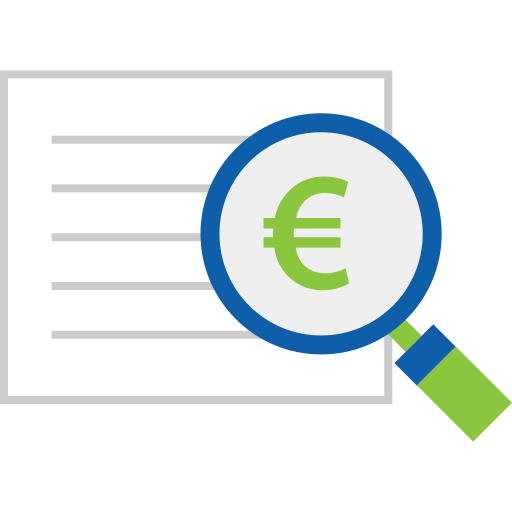
Subsistence Unvouched: On the other hand, unvouched expenses offer flexibility in situations where receipts might not be readily available. Unvouched subsistence expenses, such as meals and accommodation incurred at locations other than the normal workplace, remain eligible. These expenses are reimbursed based on day rates as per civil rates, ensuring that you’re still able to claim subsistence expenses effectively, even without receipts.
Site-Based Employees
Site-based employees play a pivotal role in various industries, often traversing different locations as part of their job responsibilities. Unlike those with fixed bases, site-based employees perform their duties at diverse locations, typically for periods longer than a single day. In facilitating their mobility and ensuring fair compensation, employers can cover their employees’ travel and subsistence expenses, subject to certain conditions.

The approved rate, currently set at €181.60 per week, serves as the cap for reimbursable expenses. However, exceptions apply in cases where employees aren’t responsible for their travel costs, receive board and lodgings, or were hired for a single-site assignment.
Crucially, for employees to qualify for these expenses, they must be engaged at a site located at least 32 kilometres (20 miles) away from the employer’s base. This framework not only acknowledges the unique needs of site-based employees but also underscores the importance of fair and equitable compensation practices within the workforce.
Emergency Travel
In the realm of emergency situations, where immediate attention is paramount, employers and employees alike face unique considerations regarding travel expenses. When an employee must address a work-related emergency outside of their regular hours, reimbursement of associated travel costs can be made tax-free by the employer. This includes expenses incurred for taxis or mileage, utilising Civil Service rates as guidelines.
However, it’s crucial to note that there are limitations to tax-free reimbursements. Employers can provide tax-free reimbursement for a maximum of 60 emergencies per year. It’s essential to discern what constitutes an emergency in this context; it does not include instances such as replacing an absent staff member, handling increased workloads, or attending routine events. By understanding these distinctions, employers can ensure fair and compliant reimbursement practices while addressing critical situations effectively.
Eating on Site
For site-based employees in certain sectors, employers have the option to provide a tax-free “eating on-site” allowance, facilitating fair compensation for meal expenses incurred during work hours. To qualify for this allowance, employers must not offer facilities for making tea, coffee, or other refreshments on-site, and employees should not receive any other tax-free subsistence payment.
Additionally, employees must work on-site for a minimum of 1.5 hours before and after their regular lunch break. Currently set at €5 per day, this daily meal allowance can be claimed for each day that employees incur expenses related to meals while on duty, ensuring that employees are adequately supported in meeting their nutritional needs during working hours.
Round Sum Allowances
In certain employment arrangements, employees may receive a fixed weekly or monthly ’round sum’ intended to cover expenses, regardless of the actual expenses incurred. However, it’s essential to note that such ’round sum’ payments specifically designated for expenses are taxable and subject to PAYE deductions.

In instances where taxes have been deducted from these allowances at the source, employees have the option to claim a tax deduction for the actual expenses related to travel and subsistence incurred during the performance of their duties.
Small Benefits Exemption
Since 1 January 2022, employers have been granted the opportunity to provide employees with up to two tax-free small benefits annually, following amendments unveiled in the Budget on 27 September 2022. These benefits, capped at a combined value of €1,000, must be non-monetary in nature, offering a range of possibilities for employee appreciation beyond mere cash rewards.
It’s crucial to note that if more than two benefits are conferred within a calendar year, only the initial pair qualify for tax-exempt status. Any remaining allowance cannot be rolled over into subsequent periods, emphasising the importance of judiciously utilising this tax benefit for employee recognition and morale boosting.
Enhanced Reporting Process
To adhere to the newly implemented enhanced reporting process, it is imperative to maintain meticulous documentation for all expense claims. This entails comprehensive records for each expense, comprising receipts, invoices, and a concise explanation of the purpose behind every expenditure.

Additionally, for unvouched expenses, it’s essential to furnish supplementary details regarding the nature and essentiality of the claimed expenses. These modifications aim to establish a more transparent and accountable procedure specifically tailored for locum doctors. By embracing and conforming to these enhanced reporting requirements, individuals can streamline their tax reporting procedures, ensuring both efficiency and compliance.
As we conclude this comprehensive guide to mastering your finances as Beacon Locum Contracting Professionals, it’s important to acknowledge the complexity of tax regulations and the intricacies of expense management. Our aim has been to empower you with the knowledge and insights needed to navigate these challenges effectively.
Remember, staying informed and compliant is key to safeguarding your financial well-being. If you have any questions or concerns regarding tax regulations or expense management, don’t hesitate to reach out to us. We’re here to support you every step of the way. Stay informed, stay compliant.
Information
Under InTax, there are an array of other services on offer to make your financial affairs less stressful. InTax offers tailored accounting, expertise, and in-depth knowledge of local tax law. From bookkeeping to filing a tax return, they can help you with your finances.
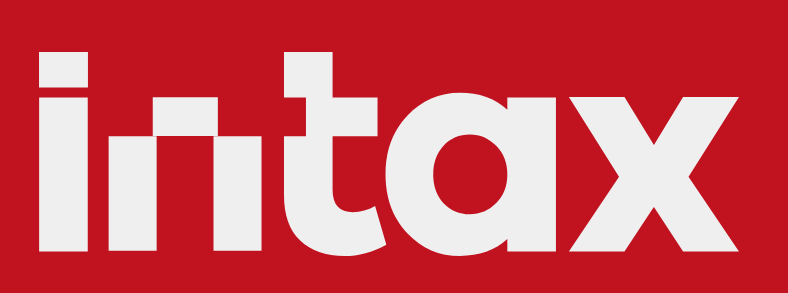
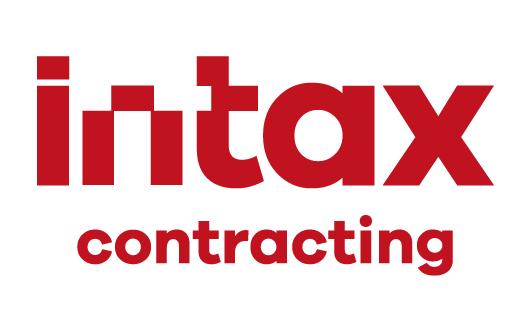
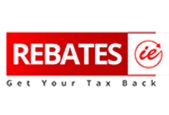
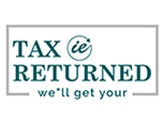
Businessman, Mr. Irfan Hameed saw how locum doctors are often plagued with paperwork and other inconveniences that stop them from focusing on what’s important. Now, his revolutionary company BeaconLocum are handling their affairs, making life a lot easier for healthcare professionals.
It’s not easy being a locum doctor. In addition to the pressures of working in a healthcare setting, you often have to deal with inconvenient, time-consuming paperwork associated with self-employment. After a 50- or 60-hour week in an intense, highly pressurised environment, the last thing any healthcare professional wants to do is think about their taxes or whether their affairs are in order.

Many locum doctors are from outside of Ireland, too, which can add further red tape to working in an Irish hospital. Before a foreign locum can even start working, they’ve got to apply for permission to practice medicine in Ireland, find a house, get mortgage approval, and make an array of other practical considerations.
When Irfan Hameed moved to Ireland over 20 years ago from his native Pakistan, he saw first-hand how making connections before arriving can make things easier for professionals. Simply put: If you already know people in Ireland, it’s easier to settle in. A graduate of both Dublin Business School and Griffith College Dublin, he set up the Pakistan Ireland Business Council (PIBC), which provides a directory for Pakistani professionals who have moved to Ireland.
Hameed saw the strain that locum doctors work under; many medical professionals who are members of local community groups and organizations expressed a desire for a specialized service that could handle their affairs or help them make connections. They were tired of, and sometimes overwhelmed by, additional paperwork on top of an already grueling schedule.

Hameed decided that he would use his expertise to set up a company that would help them.
Improving the lives of locum doctors
In 2019, Hameed set up BeaconLocum, a one-stop shop for locum doctors who want to work, or who currently work, in the Republic of Ireland.
“We’re very proud to work with locum doctors and other healthcare professionals, making their lives as hassle-free as possible,” he says. “By outsourcing to us, they can maximise their productivity, or even just create a little bit more leisure time for themselves — whatever they want to do, it’s up to them.”
By signing up to the service, locum doctors can avail of an entire suite of services. This includes tax advice to minimise retention rates, setting up public liability insurance, employers’ liability insurance, and professional indemnity insurance.
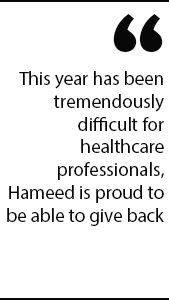
BeaconLocum will also look after all of their tax affairs, liaising with the Revenue Commissioners on their behalf. There’s no paperwork, no sign-up fee or exit fee, either. BeaconLocum even sends a payslip every month, so that locums get a breakdown of their income and tax expenditure. Crucially, BeaconLocum functions as an umbrella company under which locum doctors can operate, saving them the headache of setting up their own.
“A lot of people really don’t want to set up their own company to operate; it can be complicated,” Hameed adds. “Our goal is to make things as quick as possible. All we need is an email saying where the locum is working, along with a few other details, and we can take care of the rest.”
The company also put locum doctors in touch with top agencies like:
- Global Medics
- Locum Express
- PE Global
- Locum Link
- TTM Healthcare
helping them secure work in Irish hospitals. Last year, BeaconLocum put around 30 doctors in contact with the HSE, and hospitals offering locum contracts, putting more healthcare professionals to work during the Covid-19 pandemic.
This past year has been tremendously difficult for healthcare professionals. Hameed is proud to be able to give back. “It was a huge pressure time for doctors,” he says. “We’re so happy that our service can make their lives easier, and we can give back to people that we all owe so much to.”
So far, they’re associated with over 100 doctors, with plans to expand further in the next few years. BeaconLocum, which is part of Invest Ireland and Talent Ireland, are also now branching out to offer services to IT contractors through our company InTax Contracting, we are an umbrella company that will offer the same service to IT Contracters.
Their significant social media following also allows them to reach out to doctors abroad and facilitate them in making a move to Ireland.
“We’ve had a terrific response,” Hameed continues. “As part of the package, we can also deal with practical aspects of moving to Ireland: getting a mortgage, making connections, even finding a halal shop if that’s what they require. We’ll tell them how to get licensed by the Irish Medical Council, help them find work — whatever they need to make their life easier when coming to Ireland.
“We know how busy locum doctors are – 24-hour calls, seven-day weeks, moving around – and we’re here to help.” Read this article on imt.ie
Information
Under InTax, there are an array of other services on offer to make your financial affairs less stressful. InTax offers tailor accounting, expertise, and in-depth knowledge of local tax law. From bookkeeping to filing a tax return, they can help you with your finances.
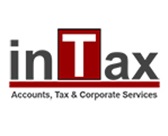
Expert accountants are hand to take care of VAT, annual accounts, and other tax affairs for businesses. Contact us

A lot of people end up overpaying tax each year, losing out on hard-earned income. Rebates.ie will help you get the money back and save more in the future. Contact us or sign up to get a tax back.

If you are self-employed, a landlord, contractor, or sub-contractor and need to file your annual tax return (Form 11), then look no further. TaxReturned will do it for you for as little as €150. Contact us or sign up to file your tax returns
We provide professional workforce management solutions to the Irish Healthcare market, including the provision of taxation, invoicing, corporate, and financial management services to locum doctors and healthcare professionals working with the HSE nationwide. Sign up today at www.BeaconLocum.ie and fill out our form, or you can email [email protected] or call 01 908 1250